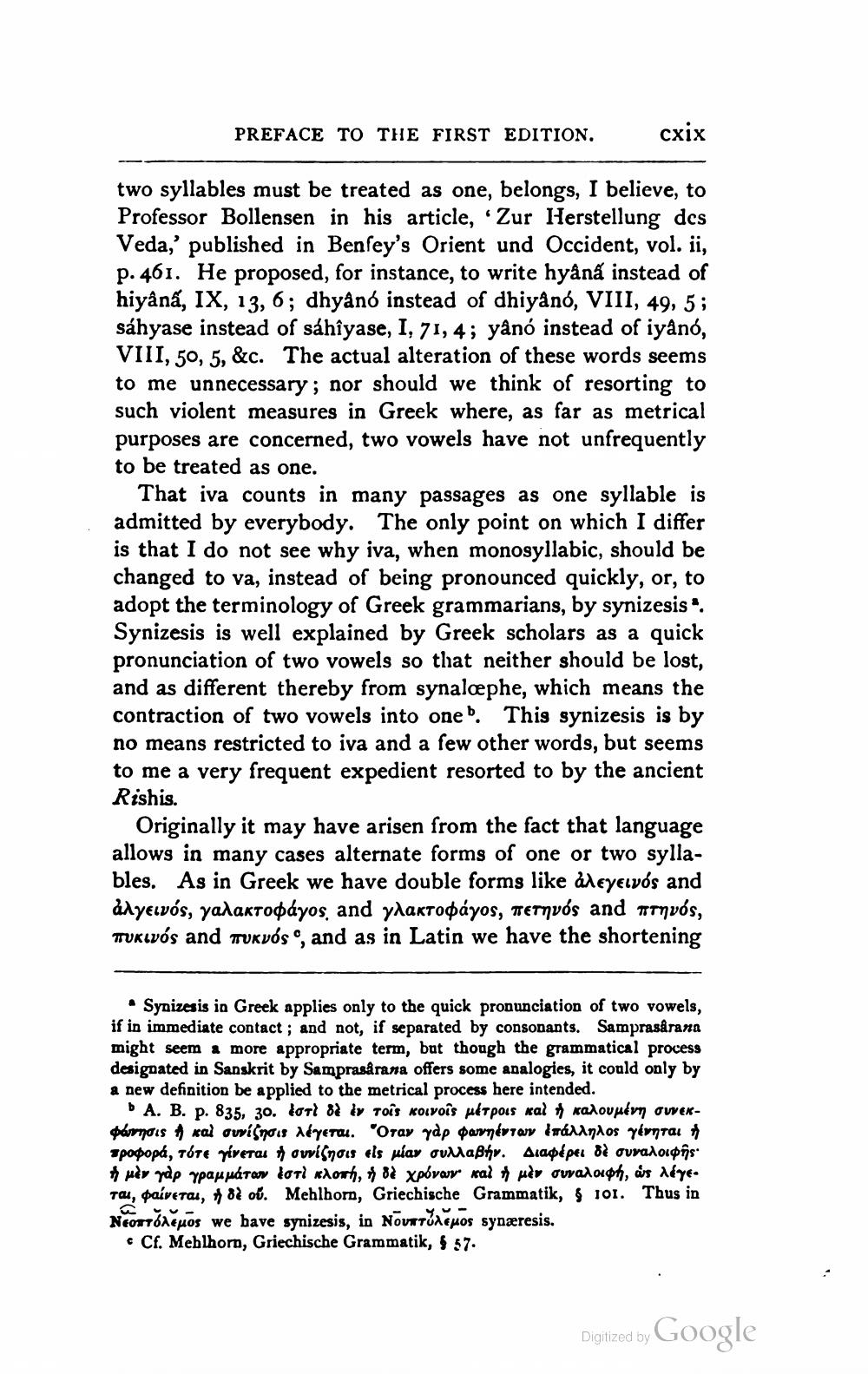________________
PREFACE TO THE FIRST EDITION.
cxix
two syllables must be treated as one, belongs, I believe, to Professor Bollensen in his article, 'Zur Herstellung des Veda,' published in Benfey's Orient und Occident, vol. ii, p. 461. He proposed, for instance, to write hyână instead of hiyâna, IX, 13, 6; dhyânó instead of dhiyânó, VIII, 49, 5; sáhyase instead of sáhîyase, I, 71, 4; yânó instead of iyânó, VIII, 50, 5, &c. The actual alteration of these words seems to me unnecessary; nor should we think of resorting to such violent measures in Greek where, as far as metrical purposes are concerned, two vowels have not unfrequently to be treated as one.
That iva counts in many passages as one syllable is admitted by everybody. The only point on which I differ is that I do not see why iva, when monosyllabic, should be changed to va, instead of being pronounced quickly, or, to adopt the terminology of Greek grammarians, by synizesis". Synizesis is well explained by Greek scholars as a quick pronunciation of two vowels so that neither should be lost, and as different thereby from synalophe, which means the contraction of two vowels into one. This synizesis is by no means restricted to iva and a few other words, but seems to me a very frequent expedient resorted to by the ancient Rishis.
Originally it may have arisen from the fact that language allows in many cases alternate forms of one or two syllables. As in Greek we have double forms like åλeyewvós and ἀλγεινός, γαλακτοφάγος͵ and γλακτοφάγος, πετηνός and πτηνός, πυκινός and πυκνός °, and as in Latin we have the shortening
• Synizesis in Greek applies only to the quick pronunciation of two vowels, if in immediate contact; and not, if separated by consonants. Samprasarana might seem a more appropriate term, but though the grammatical process designated in Sanskrit by Samprasarana offers some analogies, it could only by a new definition be applied to the metrical process here intended.
b A. B. p. 835, 30. ἐστὶ δὲ ἐν τοῖς κοινοῖς μέτροις καὶ ἡ καλουμένη συνεκφώνησις ἢ καὶ συνίζησις λέγεται. Οταν γὰρ φωνηέντων ἐπάλληλος γένηται ἡ προφορά, τότε γίνεται ἡ συνίζησις εἰς μίαν συλλαβήν. Διαφέρει δὲ συναλοιφῆς· ἡ μὲν γὰρ γραμμάτων ἐστὶ κλοπή, ἡ δὲ χρόνων· καὶ ἡ μὲν συναλοιφή, ὡς λέγει Tai, paiverai, 8è ou. Mehlhorn, Griechische Grammatik, § 101. Thus in a Νεοπτόλεμος we have synizesis, in Noυπτόλεμος synæresis.
• Cf. Mehlhorn, Griechische Grammatik, § 57.
Digitized by Google




